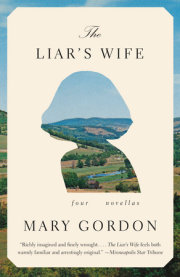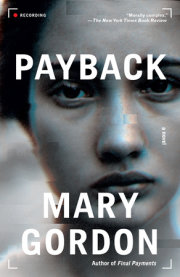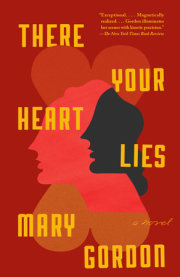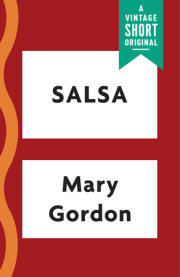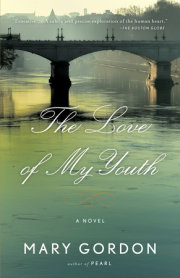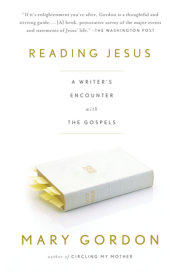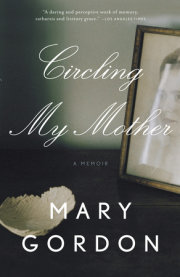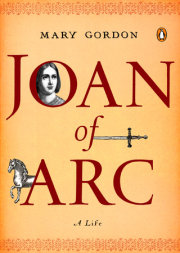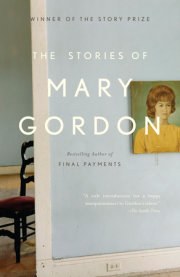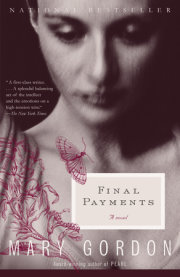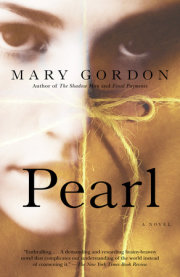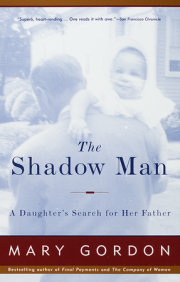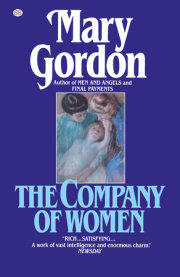from "The Liar's Wife":
She was suddenly struck at the oddness: in the years that had gone by, she had rarely thought of Johnny.
How could it be that you had married someone, loved someone, and then never thought about them?
And now, after all this time, he was here. Of course she’d have to let him in the house.
But how would she say this in a way that was neither unwelcoming nor encouraging of too much—what? Intimacy? Friendship? Time? What could she say? “Bring him in. I’ll see him now. I’m ready.” What she decided to say was not quite true, but it had the virtue of seeming inoffensive.
“I’d like to see him. Of course I would.”
The woman reached into the back pocket of her jeans. She took out a lime green cell phone and pressed one key.
“It seems you’re as welcome as the flowers in May, as one of your old songs goes,” she said.
She stood on the porch, beckoning Johnny in, as if it were her house, as if she were the hostess. Jocelyn stood behind her, still in the living room.
The door of the truck opened. The driver’s door. He walked towards the house.
It was too dark for her to make out features, but even in this light his walk was familiar to her, that mix, that had once so aroused her, of confidence and hesitation, born of the sense that was nearly but not quite absolute: everyone would be glad to see him. And there was no need to thrust or push or even rush to make his presence felt. He was still thin; and although you heard that in age people got shorter, she hadn’t noticed it yet in her friends, and she didn’t see it in him. He had all his hair, and it hadn’t seemed to turn gray; it was still blond, golden even. He was wearing jeans and a T-shirt whose inscription she couldn’t read . . . did it match the woman’s? Like her, he wore cowboy boots. The buckle of his belt was elaborate, but Jocelyn couldn’t read the lettering. Why was he trying to pass himself off as a cowboy? She remembered that he’d loved American Westerns, loved the part of America that she felt no connection to, that slightly embarrassed her. Elvis, for example. He was crazy about Elvis, whom she considered at best mildly mortifying, at worst a bore.
From this distance, he appeared to be much younger than she knew he was. She saw that he had his right hand in his pocket, and she knew what he was doing; playing with a coin, turning it up and down. It was what he did when he was nervous, and of course, he would be nervous seeing her.
He jumped up the three porch stairs—still, she thought, the master of the boyish gesture.
“Well, Jossie, if you’re not a sight for sore eyes. You haven’t changed a bit.”
And you’re still a liar, she wanted to say, surprised at her own bitterness.
“Won’t you sit down,” she said, indicating the couch to them, displeased at her own diction.
The woman sat down and patted the chintz fabric of the couch. “Johnny was as nervous as a cat that you wouldn’t want to see him. I said, ‘Johnny if she don’t want to see you we just start up the truck and just take off, like we never been here.’ But he says to me, ‘Linnet my love,’ he calls me that, I think it’s the Irish way, ‘Linnet my love,’ he says to me, ‘you go in first, to pave the way.’ I said to him, ‘For Lord’s sake, Johnny, after all this time there’s bound to be no hard feelings.’ ”
Hard feelings. Jocelyn thought. No hard feelings. What would be the opposite of hard feelings? Soft feelings. The truth is, Linnet my love, she wanted to say, I have no feelings at all.
She felt ashamed at her own nullity of heart. In place of sadness or regret there was simple curiosity. Johnny Shaughnessy was seventy-five. He’d been twenty-five when she’d last seen him. In her mind, he was still twenty-five, and Johnny had always been much more boy than man. And so, like some joke speeded-up film, the boy in her mind was the old man in her living room.
“It means the world to him,” Linnet said. “I can tell you that for sure.”
Johnny seemed to want to let Linnet talk. He was looking down at the carpet, as if the pattern were a code he might, with luck, break.
“Linnet,” she said. “That’s a lovely name. Unusual.”
“My father was Canadian.”
She wondered what that had to do with anything. She tried to remember what a linnet looked like, but she was pretty sure it was a small bird, rather delicate. But there was nothing delicate about this woman, with her tortured hair, her oversized breasts, her Born to Be Wild T-shirt, her long red nails. The stench of cigarette smoke clung to her. Jocelyn wondered if her breasts were real. It seemed unlikely, given the smallness of the woman’s frame. But what did it matter if she’d had—a phrase Jocelyn loathed—a boob job? She wouldn’t be spending enough time with her for it to matter one way or another. A few minutes, half an hour perhaps. Then she’d be gone from Jocelyn’s life, as quickly and easily as she’d entered it. Taking Johnny with her. Quickly and for good.
“You’re probably surprised to see an old Frito-Lay’s truck parked in front of your house, on your nice street. But it’s our job. It’s a pretty common job for senior citizens. Pretty common for retirees trying to supplement a pension. Cross-country hauling, I mean to say. Of course we’re not exactly retirees. A musician never retires. For a musician, retirement and death are the same word. And the Lord knows neither of us have a pension.”
“You’re still playing and singing, Johnny?” Jocelyn asked, glad to think of something to say.
“We both do, Jossie,” Johnny said. “We call ourselves Dixie and Dub.”
“On account of he’s from Dublin and I’m from Tennessee.”
“Oh, yes I see,” she said, wanting to add, You were better than that when I knew you.
###
It was the fourteenth of July, 1962, the day she met him. She remembered it was Bastille Day.
He had come into their lives because her father had met him on the train. His usual train, the 5:38. Johnny had sat down next to him, out of breath, having only just made the all-aboard. She always imagined a conductor shouting “All aboard” and Johnny running down the track, jumping onto the train at the last minute. But she wasn’t really sure if anyone shouted “All aboard” on suburban commuter trains.
Johnny had engaged her father in conversation. Had her father been reluctant, putting his face in his New York Times to seem discouraging? But no shield could withstand the thrusts of Johnny Shaughnessy when he was determined to make contact. Of course her father had been charmed. Perhaps it was his voice, the beautiful Irish cadences, making you feel you’d never heard English spoken properly before. Her father had been seduced. Johnny was a seducer. His seduction of her was in a way the least spectacular of the many she’d observed. He had seduced her, but it had been he who’d been abandoned. There was a category “seducer,” but none for the abandoner. That is who she had been.
Copyright © 2014 by Mary Gordon. All rights reserved. No part of this excerpt may be reproduced or reprinted without permission in writing from the publisher.


